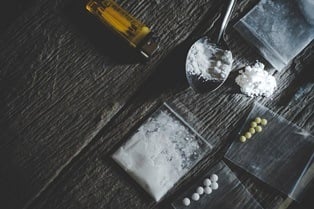If your child has been accused of or charged with possession of a controlled substance, you’re likely to be uncertain about what to do next. It’s important that you receive accurate and reliable information, so you can parent your teen through this challenging time and get the best possible legal outcome. 
Virginia’s Drug Possession Laws
There are several different types of criminal drug laws in the Commonwealth of Virginia. One of those laws, found in the Code of Virginia §18.2-250, makes it a crime for a person to knowingly or intentionally possess a controlled substance without a valid prescription. The potential penalty for possessing drugs without a valid prescription in Virginia depends on how the controlled substance is classified according to law.
Virginia law divides drugs into the following six categories:
- Schedule I drugs are those with no accepted medical use and have a high likelihood of being abused. These include heroin.
- Schedule II drugs also have a high likelihood of being abused, but they also have an accepted medical use. These include cocaine and methamphetamine.
- Schedule III drugs are less likely to be abused, and they have an accepted medical use. Steroids and codeine are examples of schedule III drugs.
- Schedule IV drugs are even less likely to be abused, and they have an accepted medical use. Medications such as Xanax, tranquilizers, and sedatives are considered to be schedule IV substances in Virginia.
- Schedule V drugs have a low likelihood of being abused and have an accepted medical use. Cough medicines are included in this category.
- Schedule VI substances are not drugs. Instead, they are substances that may be used as recreational drugs. These include chemicals found in paint or aerosol cans.
Possession of marijuana is also illegal in Virginia.
Adults who are charged with drug possession may face prison time and fines ranging from 10 years in jail and a $2,500 fine for possession of schedule I or schedule II drugs to a $250 fine for possession of a schedule VI substance.
Teenagers may face the same, or similar, consequences as adults. They may even be tried as adults in some cases. Often, however, and particularly for a first offense, Virginia courts will not impose the same kind of penalties on teenagers as they would adults. Instead, the court may be willing to offer options that do not ruin your child’s future but provide support and education instead. Even so, you still need to fight for your child’s rights and protect her future, even if she’s made this type of serious mistake.
Our Juvenile Defense Attorneys Can Help Your Child
If your child faces juvenile drug possession charges in Virginia, our lawyers are here for you. We can help your child find adequate drug treatment, counseling, and rehabilitation services. We can also fight to make sure that your child is treated fairly in the criminal justice system, and we will do our best to see that any long-term consequences are avoided. Call us, or fill out our online contact form if you would like to schedule an initial meeting with one of our criminal defense lawyers to learn more about what you can do to help your child.
|
Related links: |

